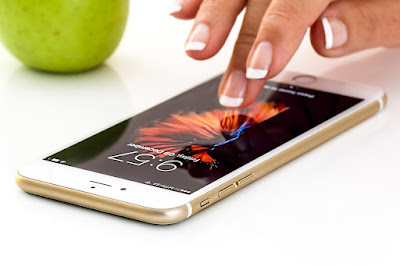The iPhone is a globally renowned smartphone that has been influential since its debut in 2007. Apple deserves credit for popularizing the smartphone as a mainstream device, though there are also some drawbacks that need to be addressed. However, in this article, we will focus on the reasons why the iPhone holds such great value from the perspective of a Sri Lankan.
Let's begin by discussing some of the iPhone's features that contribute to its value. Firstly, its build quality is exceptional. Not only does it have an aesthetically pleasing design, but it is also constructed with high-quality materials and built to last. The new models of the iPhone, except for the regular iPhone 14, have a back glass fused with the frame, which makes it so that the only way to access the phone's interior from the front by removing the display. This design helps protect the phone from water and dust, which is a common issue with many Android phones. The adhesive holding the back panel become loose over time due factors like heat, which can cause them to lose their IP rating.
Apart from its excellent build quality, the iPhone is also known for its longevity. If you are not interested in having the latest and greatest features, an iPhone can last you for a long time. Some people still use iPhones that were released six or seven years ago, and these devices still perform relatively well when it comes to everyday tasks. One reason for this longevity is the operating system, iOS, which is a lightweight and well-optimized OS. Apple only releases about four phone models per year, making it easier for them to optimize the software for the hardware they choose. The programming language used in iOS and its applications is Apple's own Swift, which is a new and optimized programming language compared to the competition's Java.
While these are the actual factors that contribute to the value of the iPhone, there are more factors that have worked in Apple's favor. One of these factors is that Apple only makes flagship smartphones, except for the SE models, which are not as popular. In contrast, Android smartphones have devices ranging from less than a hundred dollars to thousand-dollar flagships. Most people start with a budget Android phone and think that this experience is the most they can get from an Android phone. This effect gets amplified when they start comparing their phone to iPhones around them, which are surely flagships. People commonly compare photos taken with iPhones and assume that iPhones have the best smartphone cameras, which is only true when it comes to video quality. In reality, iPhones are outperformed by most other flagship Android phones like the Huawei P series, Oppo Find X series, Samsung Galaxy S series, Google Pixel phones, Vivo X series, and so on. A comparison with a Galaxy S series phone, which is like the only other flagship phone series available in Sri Lanka, will reveal this truth. iPhones have poor HDR performance, color accuracy, and details compared to these flagship Android phones, and even some mid-rangers.
Another factor that has contributed to the iPhone's success is its strong fan base. Apple has one of the strongest fan bases in the world, if not the strongest. These loyal fans will defend any errors, mistakes, or decisions made by Apple that only work in their favor but may be an inconvenience or even be a bad investment for customers. Some people even buy iPhones just to show off, which further increases their perceived value and gives Apple more freedom to not improve. Apple's strategy of releasing only a few phone models per year has made their products easily recognizable. Anyone can spot an iPhone on the street due to its distinctive design and branding, making the process of showing off an iPhone much easier. This has contributed to the iPhone's popularity and helped to build a strong fanbase around the brand.
Additionally, Sri Lanka has a strong second-hand market for iPhones, which provides people with easy access to flagship phones at more affordable prices.
In conclusion, the iPhone has several features that make it a valuable smartphone, such as its excellent build quality, longevity, and optimized operating system. However, there are other factors that have contributed to its perceived value, such as Apple's decision to only make flagship smartphones and its strong fan base. This is my take on this topic regarding the society of Sri Lanka, but in other countries there are other factors like Apple's ecosystem but here they don't add much to it's value.



Comments
Post a Comment